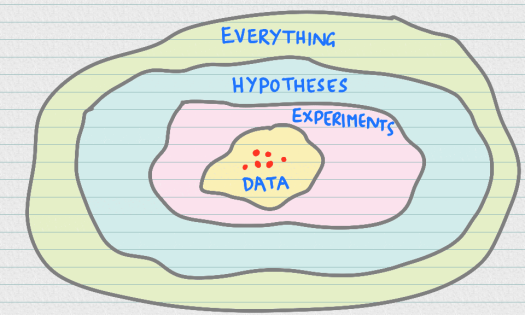Why science can’t help us to understand ourselves
We think we are much better off these days than people that went before us.
And, using virtually every measure that matters, that is the case.
At Steven Levitt and Stephen Dubner write in Superfreakononics, whether it comes to "warfare, crime, income, education, transportation, worker safety, health", many of us live in the most hospitable of times.
The reason for this is the scientific method and its rational approach to reasoned thought.
Our use of the scientific method has helped us create the modern world through a system of thinking.
In essence, we look around us at everything and wonder why it is the way it is.
We look for explanations - create hypotheses - guesses at what might be going on.
Perhaps it rains when we do a dance, for example, or that the lines on our palms can tell what is going to happen to us.
Then, and this is the clever bit, we do something else.
We design an experiment to see if our hypothesis is right.
We collect real world data and see if what we predict will happen according to our hypothesis matches what happens in reality.
It seemed obvious for many years that a heavy object would fall faster than a light object when dropped from a height.
It took an experiment - dropping a heavy and light ball from a height and seeing when they hit the ground - to show that they fell at the same speed. Their weight made no difference to the outcome.
The experiment showed the hypothesis was false and so we needed another one.
The problem is that life quickly becomes more complicated from that point.
While the scientific method changed the course of human history and gave us cars, trains, planes, rockets and the rest of the modern world, it also created an illusion that it could explain everything.
And that's wrong, it seems. The history of science shows that new hypotheses come along with irritating consistency to upend everything we know.
Simple Newtonian physics morphed into relativity and the simply incomprehensible world of quantum mechanics.
The logical end result of all this, as described in Pirsig's Zen and the art of motorcycle maintenance, is that "The number of hypotheses that can explain any given phenomenon is infinite".
What this means, in short, is that we think science will help us move towards the truth.
Where it matters, however, science simply increases the number of truths - what we believe to be true might not be true a few years from now.
Truth, rather than being fixed and unchanging, may be something we accept as true for the moment.
The point is that the scientific method has taken taken care of the material needs of many people - food, shelter, clothing.
The mistake we make is when we assume that because it explains so much, it explains everything.
The problem, again from Pirsig, is that the structure of reason based on rationality is "emotionally hollow, aesthetically meaningless and spiritually empty".
We need to look elsewhere for meaning.
Read more posts at Karthik-Suresh.com or connect with me on LinkedIn.

You have to look outside the system to understand a system.
Just want to reply with a cartoon :)
cartoon from : https://tr.pinterest.com/pin/405464772676879196/?lp=true
Have a nice day.
upvoted and resteemed
FD
Nice one. A system cannot be fully explained by only using concepts that are within the system after all. The thing is being aware of the limitations of whatever approach we take.